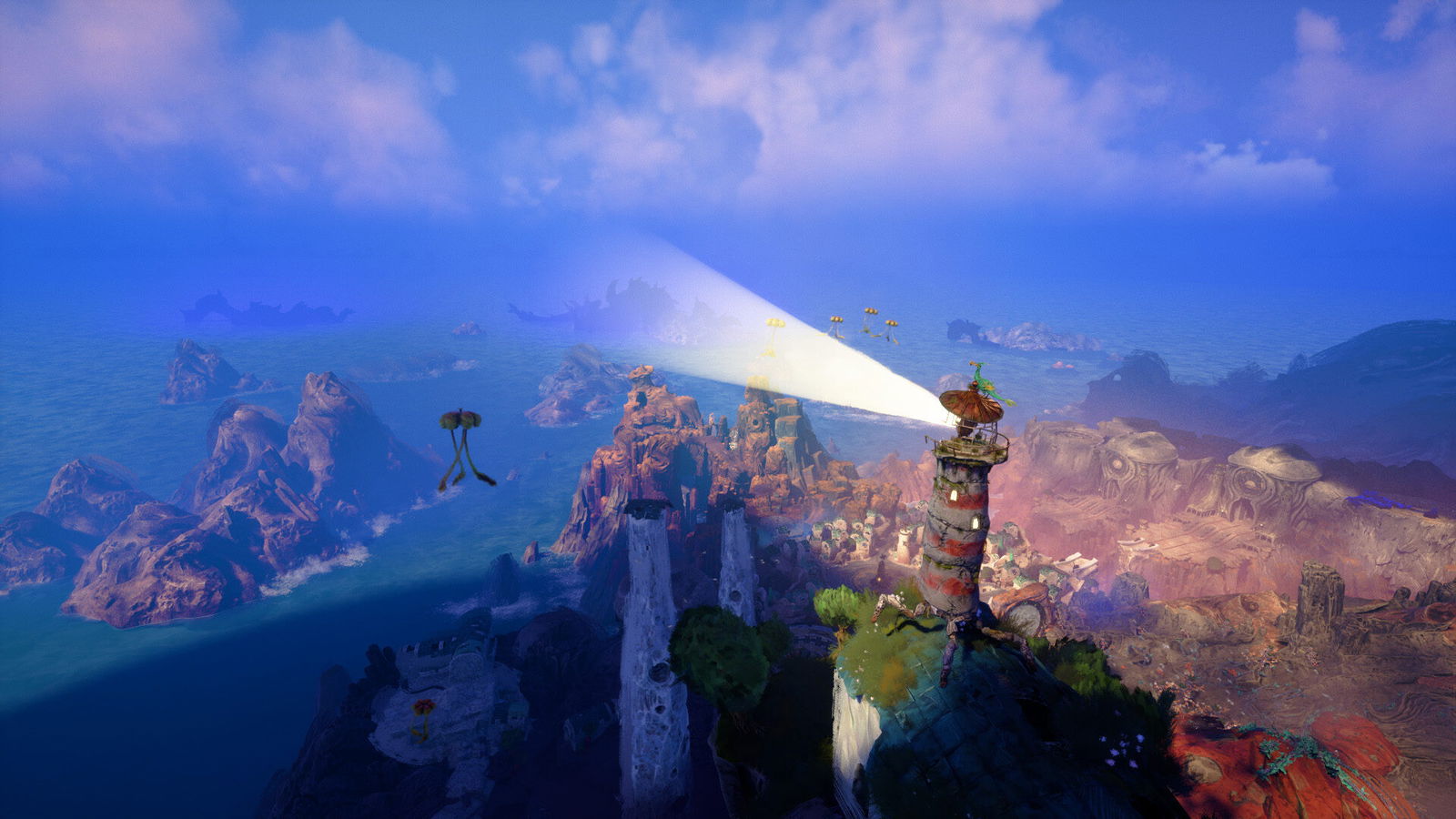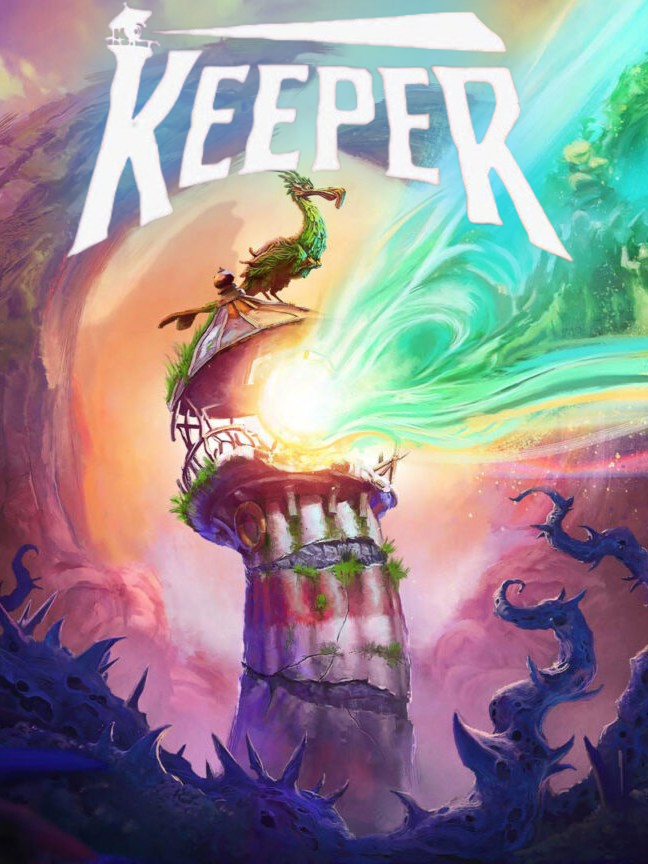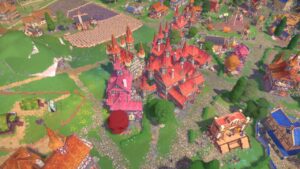When I first saw Keeper at the 2025 Xbox Games Showcase, I wasn’t all that impressed by it. If you’re familiar with their work, putting up a Double Fine logo before footage of a sentient Lighthouse crawling around on spider legs only to be joined by a strange-looking bird is only going to invoke a “Yeah…that tracks” response.
Keeper didn’t stick with me when I saw it, but I stuck with Keeper once I started playing it. Jokes aside, its immediate sense of creativity was always going to draw me to it, as I am to examples of video games as art. But Keeper is a game that, despite its bizarre trappings, uses a simple style that is unbelievably charming and incredibly captivating.
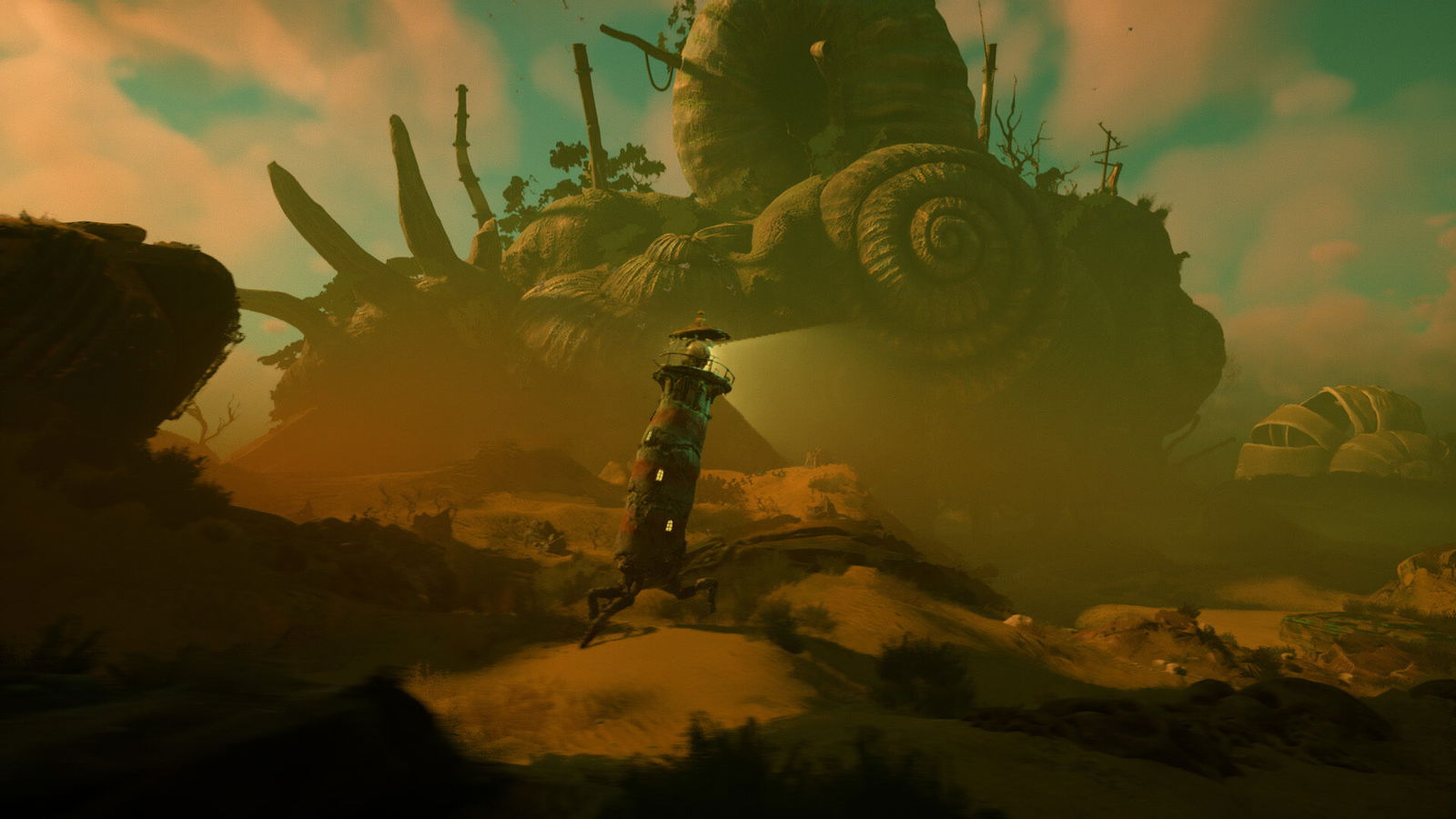
Keeper’s story is as matter-of-fact as it is imaginative. A strange land is gripped by something called The Withering—separating much of the land and seemingly causing its death. Suddenly, a lone lighthouse springs to life, as if possessed by some ancient magic and is shown a vision of a mountain. As it begins its journey towards this place, it’s joined by a strange bird named Twig, and together the two must work to reach the peak and maybe end the Withering.
There’s an unrelenting beauty in Keeper that’s hard not to be gripped by. Creative Lead at Double Fine, Lee Petty, described the creative process that went into the game as one that largely began during the COVID-19 pandemic. This feeling persists throughout the entire game as the story is delivered with no dialogue and no text, leaving it entirely to the player to both experience and interpret.
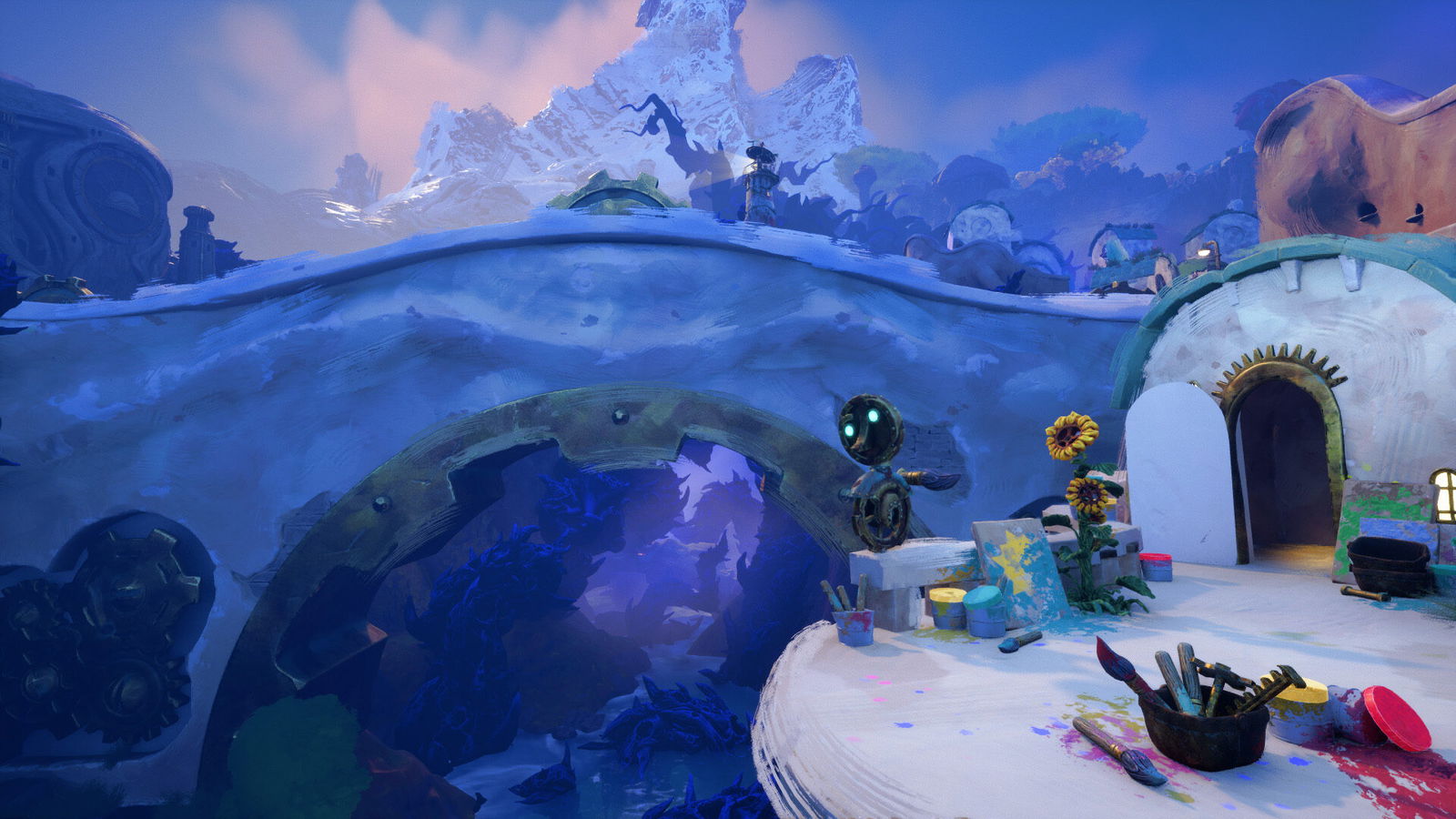
From the moment Keeper begins and the Lighthouse takes its first lumbering steps, you immediately get a sense of the weight and scale of this creature. As you continue, you start to notice the ruins of houses, buildings and human technology, and you begin to wonder what kind of life once flourished on this island.
Then you see how shining your light on certain flora causes it to spring to life, and you start to feel that you, as the Lighthouse, are having a real effect on this world. It’s slowly coming back to life as the Lighthouse moves through it and helps its strange new inhabitants. It’s a quietly powerful story that resonates more deeply the longer you play.
“There’s an unrelenting beauty in Keeper that’s hard not to be gripped by.”
Gameplay is fairly straightforward, but genuinely inventive. Keeper is effectively a walking simulator that occasionally pauses for light puzzle-solving. Most puzzles involve moving the Lighthouse to a spot and having Twig interact with an object or a lever. But the way the game consistently presents puzzles in fun and unorthodox ways is impressive.
One area in particular involves manipulating time to move through an ancient town inhabited by small robots. Certain obstacles can be cleared by reversing time to the distant past, before they ever appeared, or to the far future, when they’ve long since vanished. But there’s a catch: as a living creature, Twig is affected by the time change, whereas the Lighthouse isn’t.
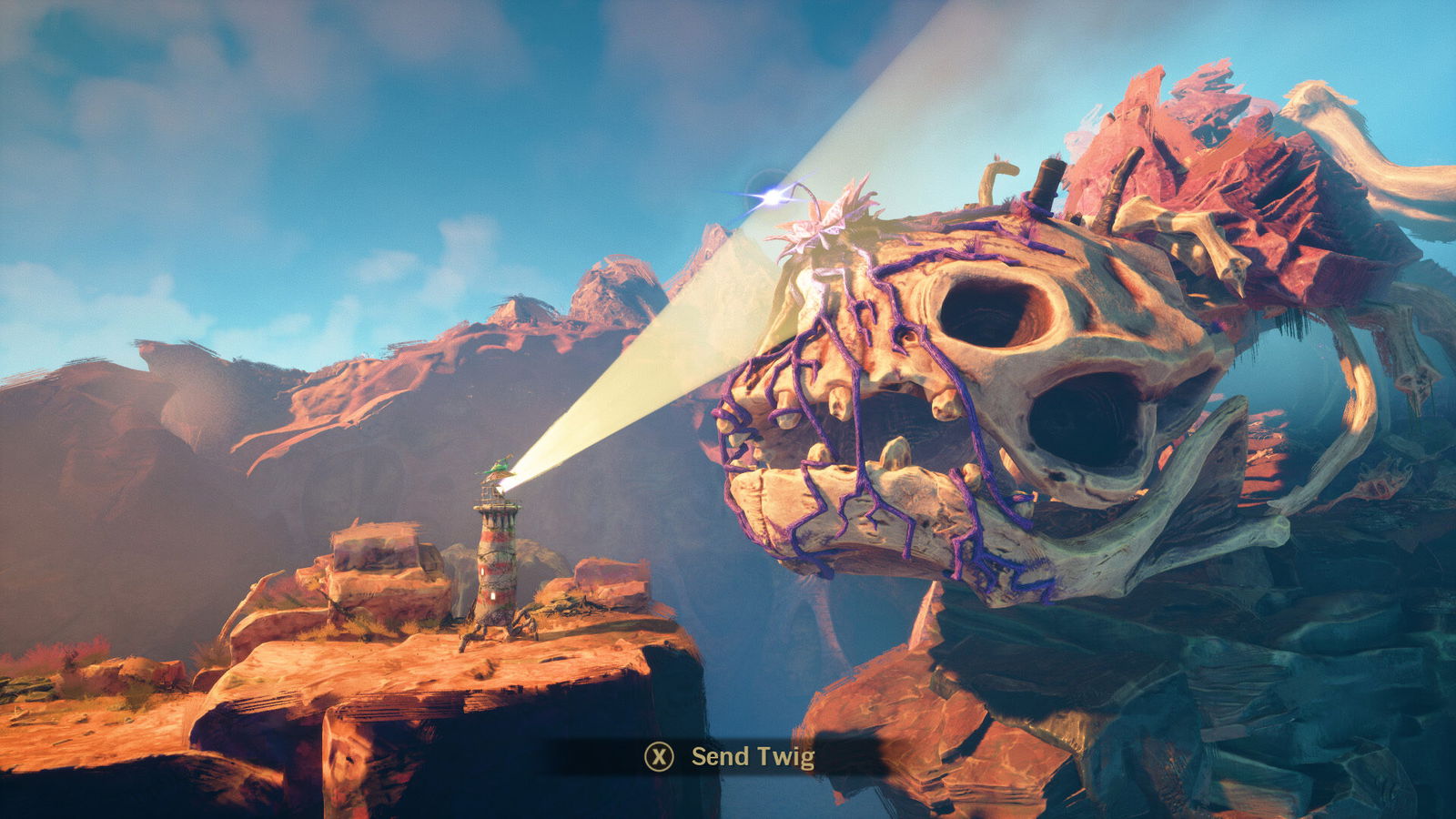
I audibly guffawed the moment I turned back time, and Twig’s limbs shot into its body as it reverted to an egg. I laughed again when I pushed time forward and Twig crumbled to bones, becoming a ghost atop the Lighthouse. Both as an egg and a ghost, Twig proved useful for some fairly simple puzzles, but the sheer breadth of ideas in Keeper kept me deeply invested.
Visually, Keeper is stunning. It has that signature Double Fine style with oblong shapes and bizarre designs for environments and characters. At the same time, it uses an almost painted aesthetic, with bold, contrasting colours that make each area burst to life. Even in its weirdness, there’s an unmistakable charm that makes the world feel genuinely alive.
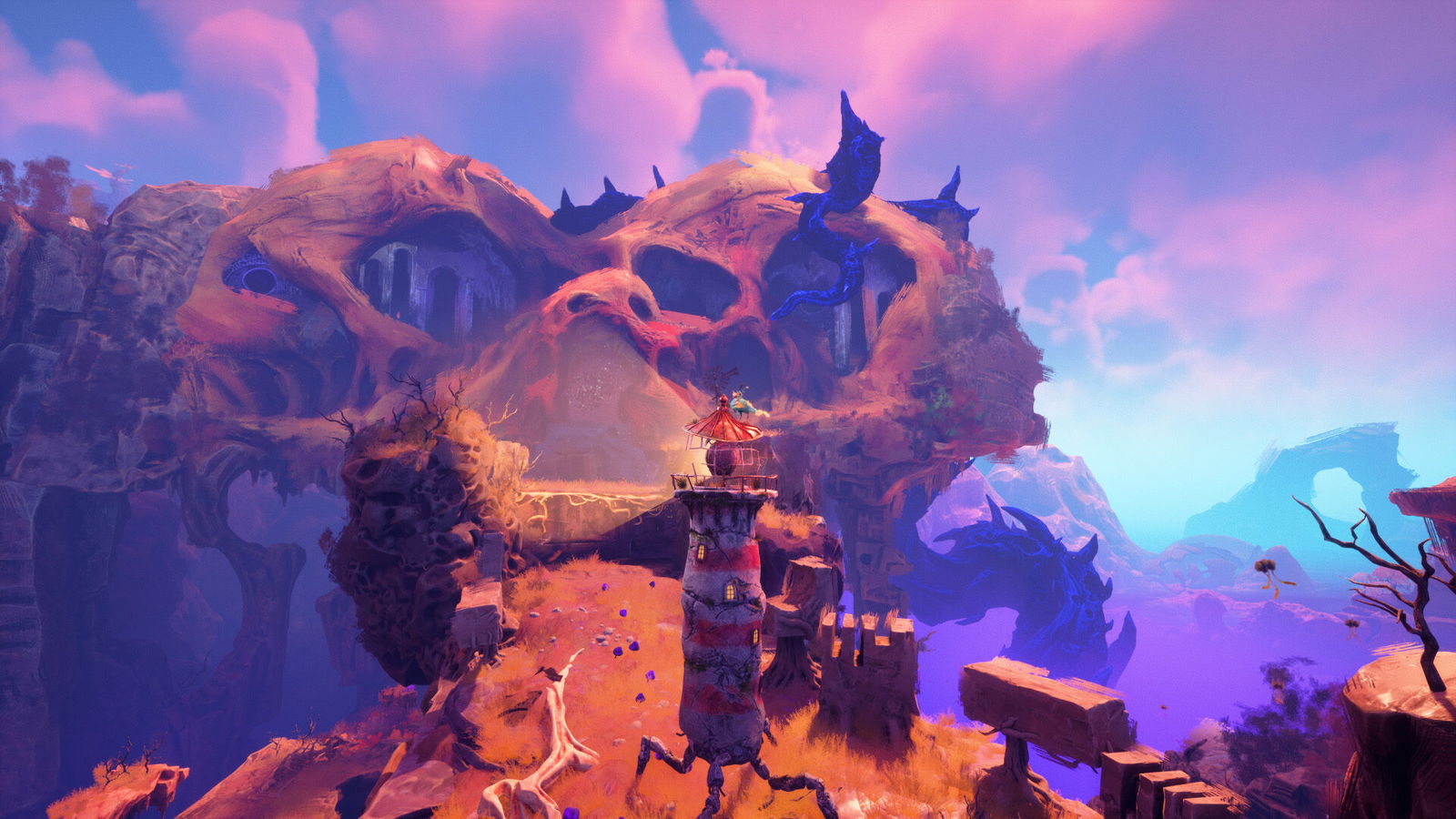
Where Keeper truly shines is in its audio design. The soundtrack is subtle and subdued, adding a sense of dreamlike whimsy to the experience without ever becoming so grand that it overpowers the gameplay. But it’s the way Keeper uses sound effects that really makes it stand out. There’s a satisfying crunch to everything that conveys not just the weight and size of the Lighthouse, but also the genuine oddity of its world.
From crushing the forgotten shells of ancient sea life, to the grind of turning gears, to the soft plop of mushrooms emerging when illuminated, every sound feels dense and deliberate. It adds a richness to the world that’s akin to what food critics mean when they talk about mouthfeel. Keeper is an absolutely brilliant game that I knew I would end up liking, but was genuinely shocked by just how much. It blends weird with wonderful to create a game that is easy to play and impossible to put down.
